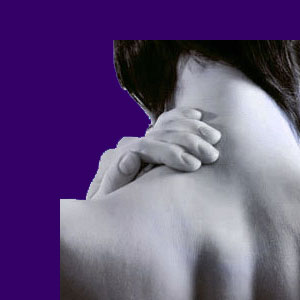
Myofascial pain is a diagnosis closely related to fibromyalgia and is often diagnosed as FMS. MPS is characterized by severe and chronic pain in the soft tissues of the body which does not seem to occur for any explainable anatomical reason whatsoever. Patients with MPS typically suffer for many years without hope, since medical management of the syndrome is generally grossly inadequate and often misdirected. Remember, none of the variations of the fibromyalgia diagnosis have any definitive known cause or cure, making them some of the most enigmatic of all health crises.
This focused essay details myofascial syndrome and why it has been so successful as a chronically disabling disorder.
Myofascial Pain Syndrome Definition
MPS is the short medical terminology used to represent this dreaded diagnosis. The term myofascial stands for pain which occurs in the muscle and fascia. Although most MPS sufferers do complain of muscular aches and pains, some also clearly have neurological involvement, which is typically ignored during the diagnostic process.
MPS is a diagnosis of exclusion, since there is no known cause and no known cure. In recent years, most people who might have suffered a diagnosis of MPS have now been diagnosed with fibromyalgia, since that particular condition is far more in style and offers more treatment options.
Generally, fibromyalgia is pronounced when pain is widespread and MPS is uttered when the pain is more localized to a regional area. However, there are many exceptions to this rule. Regardless of the actual diagnostic term used, the treatments are mostly the same and offer slim chance for symptomatic resolution despite active and sometimes dangerous care practices.
Myofascial Pain Treatment
Therapy options for MPS span the gamut from the traditional medical to the barely logical. There are numerous often contrasting and conflicting thoughts as to what exactly causes MPS and just as many varying opinions circulating about how to cope with the condition. Typically, treatment revolves around drug therapy to control agonizing and functionally debilitating symptoms. Many of the prescription drugs used are mind numbing and subject the user to a host of physical and psychological side effects. The consequences of these drugs may be worse to experience than the pain syndrome itself.
Dietary alteration is also a wildly popular therapy, but there is no standard practice applicable for every patient. Eliminating or adding any particular food item might help one suffering individual, while the same dietary change will escalate another’s symptoms. There seems to be little standardization or logic involved in most of these treatments.
MPS Advice
In my own experience working with countless fibromyalgia patients, I have seen knowledge therapy succeed far more often than any other treatment choice. The fact that the therapy has no inherent risks and does not cost any money makes it far more palatable for most people than the expensive and unhealthy medical treatment modalities.
MPS can be very difficult to overcome, since the underlying psychoemotional reasons for the pain are typically well hidden and deeply repressed. However, just like all psychologically induced pain syndromes, MPS can be cured, once the patient gives up on pursuing a mistakenly identified anatomical source for their symptoms and accepts the possibility that their pain may be the result of a psychosomatic process.
If you have tried everything to cure your MPS without success, consider knowledge therapy. You have nothing at all to lose, except your chronic pain.




